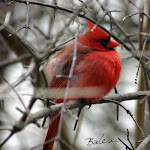
"The Tennessee Conservationist” May/June 2008
Whip-poor-wills, on the borderland of invisibility
If you grew up in the country, you know the sound. It rips through the night like automatic rifle fire.
Sitting tucked away in the shadows, where open land gives way to forest, nothing pierces the evening stillness with such force. It’s a staccato song filled with intensity and white-hot yearning, delivered with the fervor of a jackhammer. Its energy alone seems to represent the rush of the season. It’s spring! And the need to reproduce before the sultry days of summer is overwhelming, so much so that a normally hidden bird must give away its location.
“The whip-poor-will continues its lively song for several hours after sunset, and then remains silent until the first dawn of day, when its notes echo through every vale, until the beams of the rising sun scatter the darkness,” wrote John James Audubon in 1832.
If woodland wildflowers could speak, you would expect they would cry in the night with similar urgency. Their time is short and the same necessity governs their colorful panache, but the trillium and mayapple and celandine poppy sit mute and must rely on a go-between pollinator to propagate.
It’s not that way with wildlife, but there is a caveat: the males and females must find each other. Some use song, some scent and some rely on visual display, but the night belongs to the singers: the chortling frogs, peepers and, perhaps most of all, the rapid-fire voices of the farm boy’s favorite Nightjar, the whip-poor-will.
Henry David Thoreau knew them as birds of the countryside.
“The whip-poor-will suggests how wide asunder are the woods and the town. Its note is very rarely heard by those who live on the street, and then it is thought to be of ill omen. Only the dwellers on the outskirts of the village hear it occasionally,” he wrote on June 11, 1851.
“But go into the woods on a warm night at this season and it is the prevailing sound. I hear now five or six at once. It is no more of ill omen therefore here than the night and the moonlight are. It is a bird not only of the woods, but of the night side of the woods”...
Special Note: For the rest of the article penned by me, check out the May/June issue of “The Tennessee Conservationist.”
The subtitle comes from famed American ornithologist Arthur Cleveland Bent. It’s one of the best descriptions of the illusive nightjar’s lifestyle ever put to paper.
“Some birds depend on speed for safety, or on agility or strength, but the whip-poor-will relies chiefly on not being seen. Safety comes to the whip-poor-will in dim light, half shadows, and the faint, confusing obscurity of dusk, and among these, on the borderland of invisibility, the whip-poor-will lives all its days.”
Special thanks to Vickie Henderson for contributing three illustrations of whip-poor-wills and to Louise Zepp, editor of the magazine.



































































1 comment:
Lyn - GREAT article. I have really always enjoyed the TN Conservationist. My mom gets hers one day before me and she called me with the news of your article and I had to wait and wait and wait until the next day when mine was delivered in downtown Rockford. I really enjoyed your article and drawing and so sorry that I have not heard a Whip yet this year. I look forward to seeing you at the picnic. Kathy B.
Post a Comment